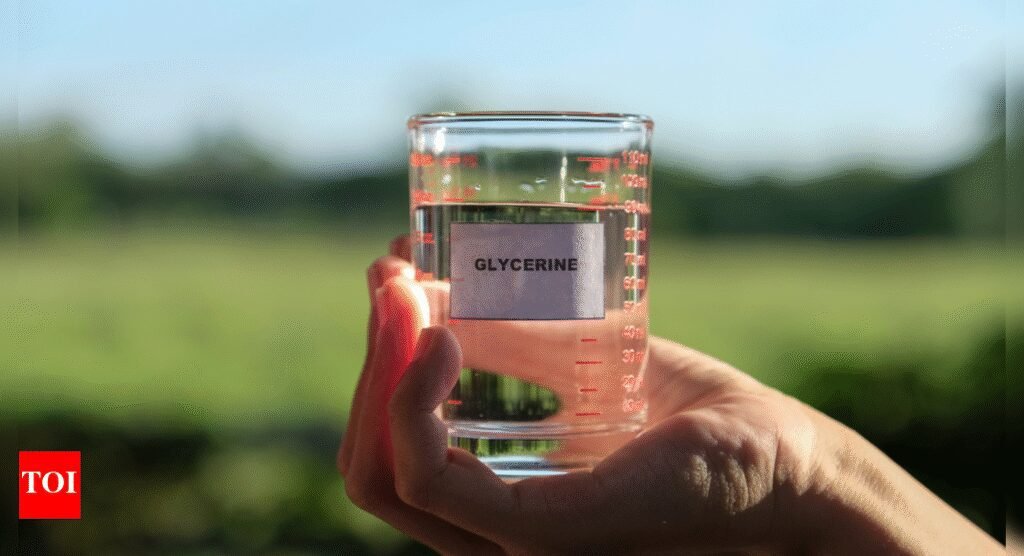Unlocking Soft and Healthy Skin: The Power of Glycerin
When it comes to skincare, it’s easy to get swept up in trends—be it hyaluronic acid, snail mucin, or niacinamide. Yet, amidst the fervor lies a humble yet powerful ingredient: glycerin. Its quiet effectiveness often goes unnoticed, but this unsung hero might be just what your skincare routine is missing.
What is Glycerin?
Glycerin, also known as glycerol, is a clear, syrupy liquid celebrated for its moisture-retaining properties. Classified as a humectant, it works by drawing water into the skin and locking it in, akin to giving your skin a refreshing glass of water and sealing in that hydration.
- Source: Glycerin can be derived from both plants (like soy or coconut oil) and synthetic processes.
- Function: Its primary role is to enhance the smoothness, softness, and hydration of your skin.
For more on humectants, check out this resource.
Why Your Skin Needs Glycerin
Many people mistakenly believe dry skin is purely a sign of inadequate moisturization. In truth, it often results from transepidermal water loss, a common occurrence that can be exacerbated by:
- Cold weather
- Air conditioning
- Compromised skin barriers
The Benefits of Glycerin
- Hydration: Pulls water from the environment and deeper skin layers.
- Lock-in Effect: Prevents moisture loss, leading to plumper, more elastic skin.
Compatibility with Other Ingredients
Glycerin is exceptionally versatile:
- Non-comedogenic: Won’t clog your pores.
- Gentle and Non-irritating: Safe for all skin types.
- Mixes Well: Works harmoniously with retinol, acids, and vitamin C.
This makes glycerin a staple in various products, from hydrating serums to sheet masks. For an in-depth look at how skincare ingredients interact, click here.
Suitable for All Skin Types
Glycerin is beneficial regardless of your skin type:
- Dry Skin: Locks in much-needed moisture.
- Oily Skin: Provides hydration without excess oiliness.
- Sensitive Skin: Gentle and soothing properties.
- Acne-prone Skin: Balances dryness caused by treatments.
Simple, Affordable, Effective
One of the most appealing aspects of glycerin is its cost-effectiveness. You don’t need to splurge on high-end creams. Many drugstore moisturizers contain glycerin as a key ingredient, providing hydration without breaking the bank.
DIY Options
Consider creating your own glycerin-based toner by mixing diluted pure glycerin with rose water or aloe vera gel for added benefits.
Should You Use Glycerin?
Absolutely!
While not the most glamorous ingredient in your skincare collection, glycerin is both dependable and versatile. Its role in hydrating, protecting, and maintaining skin balance remains crucial.
Key Takeaway
If you struggle with dry, flaky skin or a tight sensation post-cleansing, glycerin could be the missing link. It draws moisture in and keeps it there, making a significant difference to your skin’s appearance and feel.
Cost-Effective and Accessible
No need for expensive creams! Just check the ingredient list on your favorite moisturizers, and you’ll likely spot glycerin among the top ingredients. Even budget-friendly options often include enough glycerin to keep your skin feeling soft and hydrated.
Conclusion
While glycerin might not command the same attention as trending ingredients, its effectiveness is backed by science. For a reliable hydration boost that helps combat dryness and dullness, this ingredient shouldn’t be overlooked.
For more insights into effective skincare ingredients, visit Healthline’s Skincare section.
Disclaimer
This article serves informational purposes and should not be considered medical advice. Skincare needs can vary widely among individuals. Always conduct a patch test before trying new products and consult a dermatologist if you have concerns regarding skin conditions or potential ingredient interactions. Use all products as directed, and discontinue use if you experience irritation.


